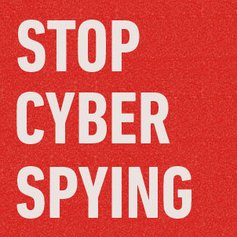
Cybersecurity legislation is on the Senate floor at this very moment, and critical votes could start as early as this evening. Here’s your primer on what’s at stake and how we expect things to go down.
Where are we in the process? Sen. Reid filed cloture on the bill last night, which means he’s ready to try for that 60-vote procedural threshold (which, according to the Senate rules, will determine whether they will move on and fully consider the bill). If he doesn’t strike a deal with Republicans sometime today, that vote will happen tomorrow morning. If his gamble pays off and he gets his 60 votes, the Senate will then turn to amendments, and hold the final vote by Friday. Of course, if there are not 60 votes, the bill is done for now, with a big question mark of what will happen when Congress comes back in the fall.
1. What are the most important amendments of which I should be aware?
a. Franken-Paul: This is the only pro-privacy amendment that will automatically be in the queue if cloture is invoked and will be the first amendment up. It would strike the section of the bill that explicitly allows companies to monitor their networks and take countermeasures against users for cybersecurity purposes. It’s not clear exactly what ‘countermeasures’ could entail; nor is it clear why companies would need such a potentially dangerous authority. Sens. Franken, Paul and 14 others are smartly trying to strike this section altogether and remove the last serious privacy problem with the bill.
b. McCain, Huchison, Chambliss: A number of high-ranking Republicans are offering amendments to undo the hard-fought privacy protections that made it into S. 3414, including amendments that would completely substitute the CISPA-like SECURE IT bill. SECURE IT lets companies decide whether or not to protect your privacy, empowers the NSA to collect your sensitive internet records, and allows the government to prosecute people for unrelated crimes with all of the new information it collects under cyber programs. It’s a privacy disaster. Also keep your eyes on Sen. McCain’s more targeted amendment that would specifically remove requirements that domestic cyber programs be run through civilian agencies, thereby letting the NSA and other military components directly collect your information.
2. What can I do? Call your senators right now and tell them to vote YES on Franken-Paul and no on McCain, Huchison and Chambliss. If you want more info, check out this blog explaining the importance of Franken-Paul and this coalition letter opposing the McCain and SECURE IT amendments.
Learn more about cybersecurity: Sign up for breaking news alerts, follow us on Twitter, and like us on Facebook.


